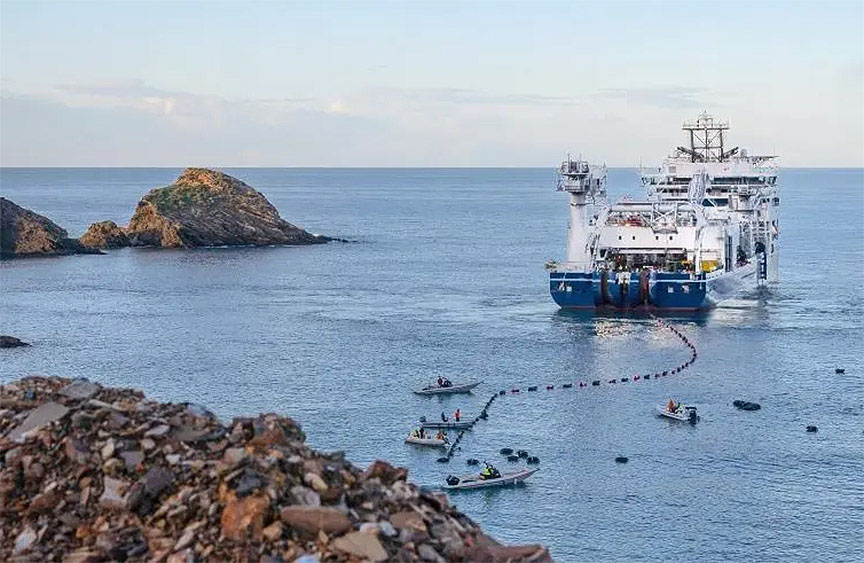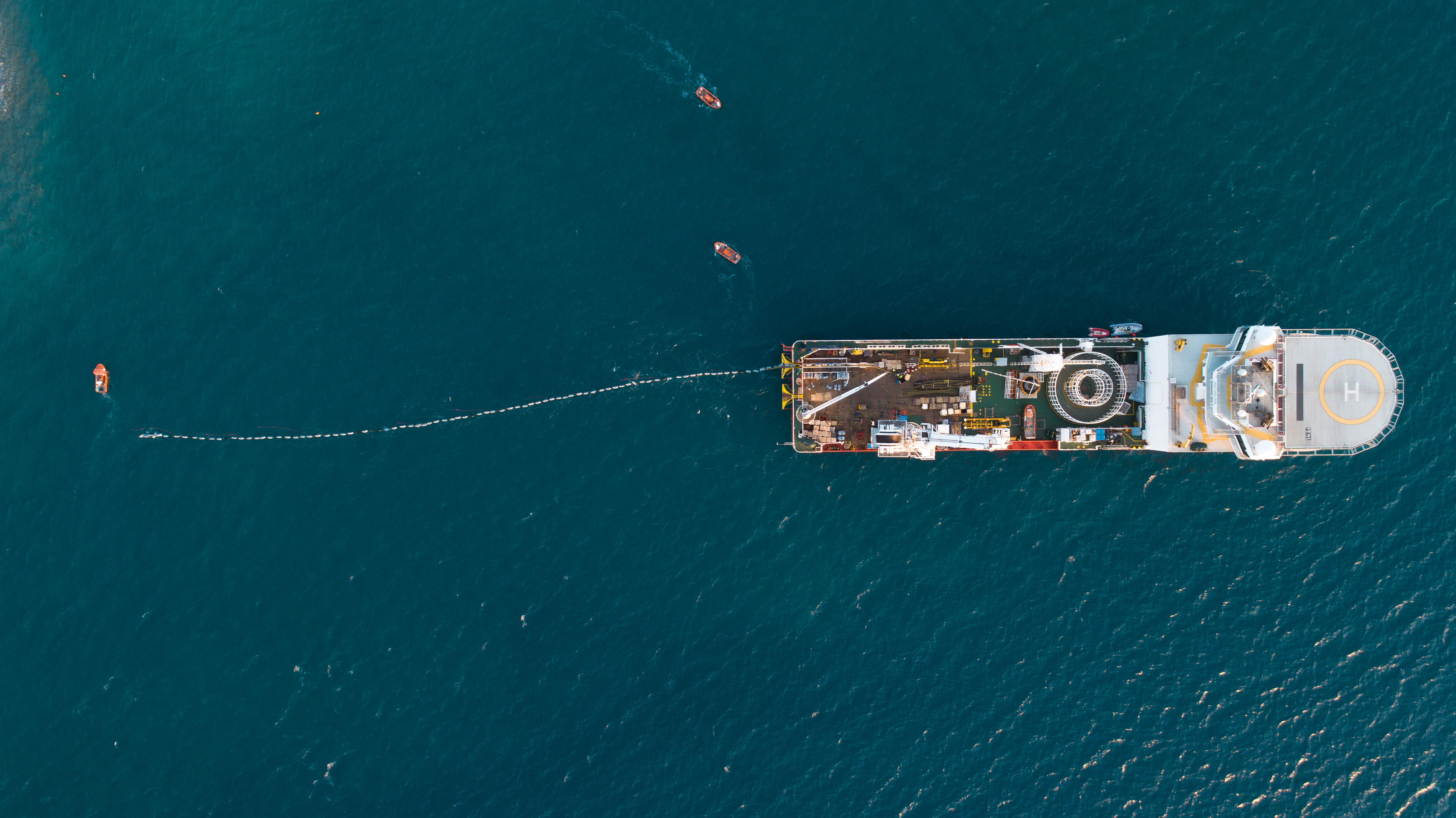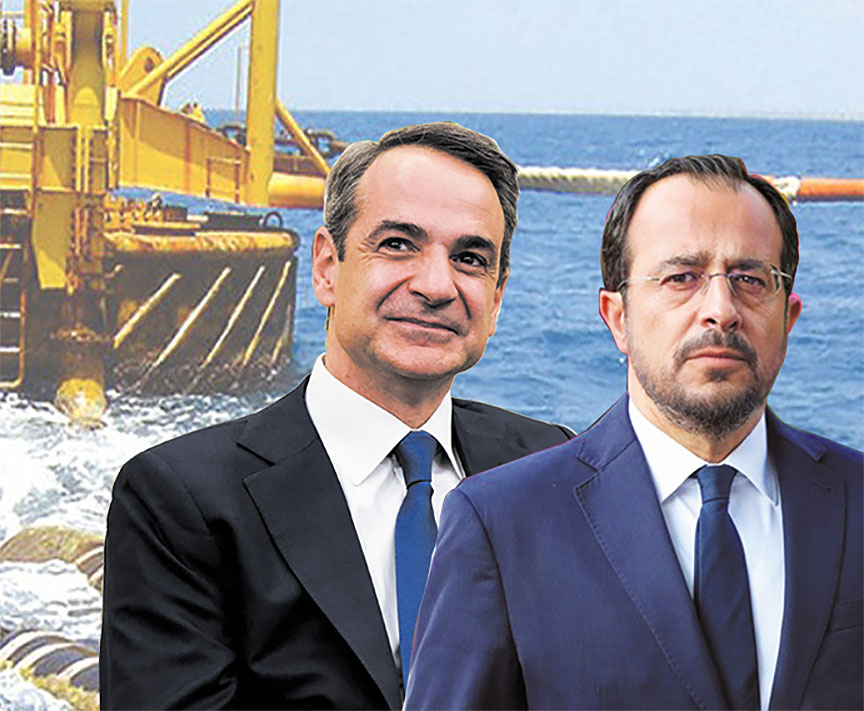It remains unclear if project would reduce the price of power for consumers in Cyprus
This week saw the Great Sea Interconnector (GSI) get bogged down in more than just substantive questions over its viability. Full-on information warfare broke out: the Greek prime minister ‘called out’ Cyprus to commit to its financial obligations, the finance minister here doubled down on his reservations about the project, and media outlets alleged the Greek foreign minister, a fervent backer of the GSI, may have a familial conflict of interest.
The GSI has become a veritable minefield.
With the European Public Prosecutor’s Office (Eppo) confirming it is investigating the GSI, attention also shifted back to the time when EuroAsia Interconnector Ltd, a Cypriot company, ran the interconnector project.
The Eppo gave no more details, but media reports in Cyprus said the European prosecutor has taken a particular interest in how EuroAsia – a company with no background in the field – managed to get pledges for a €650 million grant from the European Commission.
The Cyprus Mail understands the same question had puzzled the auditor-general’s office when in late December 2024 it alerted the Eppo over potentially suspicious dealings relating to the interconnector.
Incidentally, the Audit Office is currently working on a special report concerning the GSI. But the report will cover only the period “from the moment that the Republic of Cyprus spent, or committed to spend, public funds on the project,” Audit Office spokesman Marios Petrides told the Cyprus Mail.
The Audit Office does not carry out a formal audit unless public funds are either actually spent or committed.
This means their audit will cover the period from when the project became known as the GSI. Previously, it was known as the EuroAsia Interconnector – taking its name from the Cypriot company that promoted it.
EuroAsia Interconnector Ltd quit the project in October 2023, handing over the baton to Greece’s Admie or independent power transmission operator.
Citing its sources, daily Phileleftheros said the Eppo is looking at a Politically Exposed Person, relatives of this individual, and a person working for the European Commission at the time.
Allegedly, the PEP used their position or connections to seek and secure, for personal gain, what turned out to be a €658 million grant for the project green-lit by the European Commission in January 2022.
The probe is said to cover other PEPs as well as government officials in Cyprus.

Meanwhile news outlet Sigma reported that when EuroAsia sold the project to Admie it received a payment of €48.8 million. The money went into EuroAsia’s bank account. But only a few days later, the amount wound up back with Admie. This strange transaction has allegedly been flagged by the Eppo.
Rumours have swirled around the PEPs and/or former state officials. The names of some of those allegedly flagged for attention were reported in the press long ago – without this meaning that they were involved in any wrongdoing.
They are former foreign minister Ioannis Kasoulides, former transport minister Marios Demetriades and former justice minister Ionas Nicolaou.
Kasoulides served as foreign minister from February 2013 to March 1, 2018, and then from January 2022 to February 28, 2023.
He joined the EuroAsia Interconnector as Chairman of the Strategic Council on March 30, 2018.
Demetriades was transport minister from March 2014 to March 1, 2018. He joined EuroAsia Interconnector Plc, a private company based in London, as a director in December 2018.
Euroasia Interconnector Plc engages in the transmission of electricity. It is not to be confused with EuroAsia Interconnector Ltd, the Cypriot company. However, Nasos Ktorides, CEO of the Cypriot company, was also a director on the London-based outfit.
Ionas Nicolaou served as justice minister from March 2013 to May 31, 2019. There is no record of him sitting on the board of the Cypriot company. However, it’s understood his law firm provided legal services to EuroAsia Interconnector Ltd.

We contacted a source familiar with the matter in an institutional capacity. The source told us that, for the Nicos Anastasiades government, the interconnector was regarded as a “purely private project” but backed by the government so that it could secure a grant from the EU.
The rest of the financing would have come from private investors, such as “wealthy Arab countries”.
That was the initial pitch made to the Anastasiades administration.
But later, around 2020-2021, EuroAsia came back asking for state guarantees for a loan. The company also claimed it was in talks with investors/financiers. But the finance minister at the time, Constantinos Petrides, said no.
Things stalled.
Subsequently, EuroAsia went back to the presidential palace, seeking a “€300 million subsidy.”
Again, the government at the time gave the proposal the thumbs-down. However, it did agree to lend EuroAsia some €100 million, tapped from the Recovery and Resilience Facility – but only if a series of conditions were met.
“Effectively, Ktorides [the CEO of EuroAsia] was asking for state aid,” the sources said.
The €100 million was never actually disbursed.
And meanwhile, and despite being repeatedly asked, EuroAsia never presented the government with any study, such as how much the interconnector would cost.
Also, the European Investment Bank looked into potentially financing the interconnector – but decided against it.
It was not going well. But then, said our sources, the current administration of Nikos Christodoulides “involved the taxpayers, who up until then were not involved in the project.
“They agreed an 8.3 per cent return on capital for Admie, plus a €25 million a year payment to Admie. This got Cypriot taxpayers on the hook for the project.”
Reports this week also suggested that the European Commission got cold feet on realising that EuroAsia lacked the know-how for such a complex project and could not raise the funding for it. Allegedly, Brussels then persuaded Greece’s Admie to buy out EuroAsia, in a move backed by Nicosia and Athens.
Just days ago, Finance Minister Makis Keravnos reiterated that “no one knows” how much the interconnector will ultimately cost. Estimates vary from €2 billion to €3 billion.
The Cyprus Mail tried to contact Keravnos, but he could not be reached in time for this report.
To this day, it remains unclear whether the interconnector would in fact drive down the price of electricity for Cypriots.
The situation appears the same as back in December 2024, when two reports – commissioned by the government – got leaked to the media.
The first, done by Charles River Associates, stated: “It is unclear whether the development and utilisation of the GSI will ultimately decrease the cost of electric power for Cypriot consumers.”
And: “We find that it is unclear whether the GSI represents the optimal solution for Cyprus to 1) meet renewable energy targets and 2) lower costs to the Cypriot consumers.”
The second analysis was a legal due diligence report by Curtis, Mallet-Prevost, Colt & Mosle LLP – a New York-headquartered law firm.
It read: “The documents received from Ipto [Admie] provide no reliable evidence that the Project is financially feasible as envisioned in the Cbca Agreement or the Ipto draft documents.”
‘Cbca Agreement’ refers to the Cross-Border Cost Allocation Agreement entered into on October 10, 2017 between the respective energy regulators of Greece and Cyprus.
Other commentators are meanwhile asking about the point of the interconnector in the first place. For instance, writing for the Cyprus Mail, engineer Linos Jacovides argued that the 2,000 megawatt capacity of the GSI far exceeds that of the Cypriot grid, which is 1,400 megawatts.






Click here to change your cookie preferences